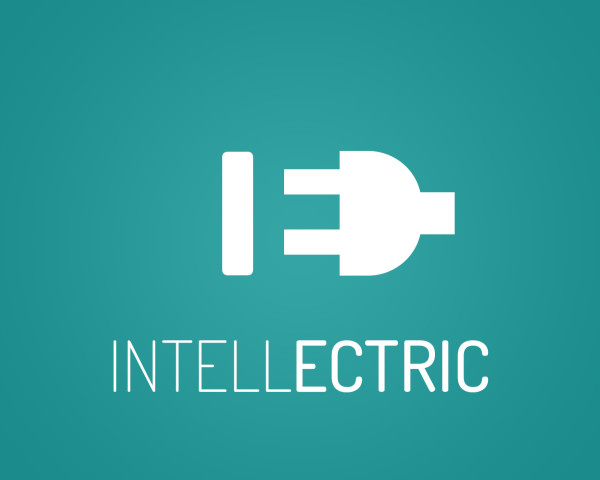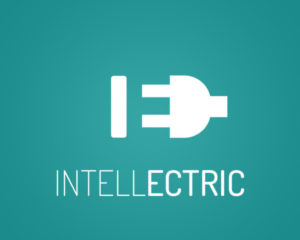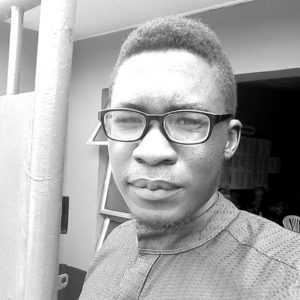Economy
Power Crisis: 3 Nigerian Engineers Make Major Breakthrough


By Dipo Olowookere
Three graduates of Covenant University, Ota, Ogun State have come up with what might finally solve the age-long power supply crisis in Nigeria.
The three young men; Adeyinka Amurawaiye, Oluwaseyi Oguntade and Segun Busari have, through their company, Intellectric Systems, designed solar-based renewable energy prototypes, which consumers do not even have to own to use.
At the moment, consumers, beset by poor power supply on the one hand and the noise and pollution of generators on the other, are forced to buy tons of heavy-duty batteries and acres of solar panels with inverters for their energy needs, which do not come cheap.
Team leader of Intellectric, Adeyinka, recalled how they started what might turn out to be Nigeria’s first pay-as-you-go solar-power system.
He said, “Seyi and I had previously discussed the non-uniformity that exists in the renewable alternative power market. We agreed that the reason why people don’t buy from solar and battery systems was that there was no proper and simple enough standards on what to expect. We also asked ourselves how we could make the system cheaper for consumers.”
Even when Adeyinka, Seyi and Segun saw what they thought was a market gap, they still spent weeks contemplating their next move. Their engineering minds (Adeyinka studied Chemical Engineering, while Seyi and Segun studied Computer Engineering) were restless, but thanks to a chance programme Adeyinka watched on Bloomberg TV, they held back from jumping the gun. They decided to test the market first.
“Something struck me from the programme,” Adeyinka said. “I discovered a business strategy we could use to enter the market. We could promise to cut the consumer’s energy bill from the first month and, instead of making them buy and own batteries, panels and all the paraphernalia, rent it to them for a monthly flat rate.”
Adeyinka and his friends carried out a market survey, covering bank managers, frozen food sellers and shop owners, and the idea was well received.
They pooled their savings, but had barely finished the first prototype when they ran out of cash. They approached an investor for N5 million, who asked for proof of concept and when they told him it was still work in progress, he gave them N870,000 with which they produced a prototype that could generate 3.5kva – enough to light up an average three-bedroom flat with television and perhaps a medium-sized fridge, depending on the rating.
Intellectric Systems’ solar-power system is like the normal solar and battery system with an inverter supplying the final output of power. The difference, however, is that the entrepreneurs have embedded proprietary electrical circuits in their own system.
The standard prototype, which according to Adeyinka is able to generate 5kva of power, also requires fewer batteries and panels to operate. And under the company’s “rent a solar power” option, the consumer does not have to “own” the system to enjoy the service.
Adeyinka said, “Our intention is to focus on users who are currently spending a lot of money on power. We would like to help them save up to 30 percent of their monthly bills right from the first month. We would start with small businesses.”
As the product nears market launch, Adeyinka and his partners have spent the last two months testing the system. He said experts in the different components have also been invited to review the prototype, which will soon be subjected to further stress and field tests.
With a smile, Adeyinka said, “We’re coming into the play with a 24-hour system. It is not expected to discharge. It’s an autonomous system that uses solar power to make things sustainable.”
The billing system will also be different. It will be a flat rate on the capacity installed in the building – the higher the capacity, the higher the rate.
The currents of the journey have not been without their high-tension moments.
“People in Nigeria are used to seeing finished products, which are usually imported,” Adeyinka remarked. “When we tell potential investors that we have working prototype just about to enter the market, it doesn’t make sense to them. That is a major barrier.”
A number of failed experiments also gave the team sleepless nights. “Those were our lowest moments,” he said.
Out of the ashes of those failures, however, Intellectric Systems has grown and Adeyinka and his teammates have also grown with it.
Looking to the future, Adeyinka said: “We expect the business to contribute up to 500kva of stable electricity to the country through different private applications in the next three to five years. We’re in a major growth industry and we’re playing for the long term.”
Source: Youth Enterprise With Innovation in Nigeria Connect.

Adeyinka Amurawaiye
Economy
Nigeria’s Economy Expands 4.07% in Q4 2025

By Adedapo Adesanya
Nigeria’s economy, measured by gross domestic product (GDP), grew by 4.07 per cent (year-on-year) in real terms in the fourth quarter (Q4) of 2025.
The National Bureau of Statistics (NBS) announced the development in its latest GDP report for Q4 2025 on Friday.
The latest figure represents an improvement over the 3.76 per cent growth recorded in the corresponding period of 2024, signalling sustained recovery across key sectors of the economy. The growth rate was faster than the third quarter’s 3.98 per cent.
The report confirmed that Nigeria’s oil sector grew 6.79 per cent year-on-year and the non-oil part of the economy expanded by 3.99 per cent.
Nigeria’s average daily oil production stood at 1.58 million barrels per day in the final three months of 2025. That was lower than the third quarter’s output of 1.64 million barrels per day but higher than the 1.54 million barrels per day in the fourth quarter of 2024.
Breakdown of the data showed that the agriculture sector grew by 4.00 per cent in the fourth quarter of 2025. This marks a significant increase compared to the 2.54 per cent growth recorded in the same quarter of 2024, reflecting improved output and resilience in the sector.
The industry sector also recorded a stronger performance during the period under review. It grew by 3.88 per cent year-on-year, up from 2.49 per cent posted in the fourth quarter of 2024. The improvement suggests enhanced activity in manufacturing, construction, and related industrial sub-sectors.
The services sector maintained its position as a major growth driver, expanding by 4.15 per cent in Q4 2025. However, this was slightly lower than the 4.75 per cent growth recorded in the corresponding quarter of the previous year.
Overall, the 4.07 per cent GDP growth in the final quarter of 2025 underscores broad-based expansion across agriculture, industry, and services, despite a marginal moderation in services growth.
The Q4 performance provides further evidence of strengthening economic momentum, with improvements recorded in both agriculture and industry compared to the previous year.
Economy
Flour Mills Supports 2026 Paris International Agricultural Show

By Modupe Gbadeyanka
For the second time, Flour Mills of Nigeria Plc is sponsoring the Paris International Agricultural Show (PIAS) as part of its strategies to fortify its ties with France.
The 2026 PIAS kicked off on February 21 and will end on March 1, with about 607,503 visitors, nearly 4,000 animals, and over 1,000 exhibitors in attendance last year, and this year’s programme has already shown signs of being bigger and better.
The theme for this year’s event is Generations Solution. It is to foster knowledge transfer from younger generations and structure processes through which knowledge can be harnessed to drive technological advancement within the global agricultural sector.
In his address on the inaugural day of the Nigerian Pavilion on February 23, the Managing Director for FMN Agro and Director of Strategic Engagement/Stakeholder Relations, Mr Sadiq Usman, said, “At FMN, our mission is Feeding and Enriching Lives Every Day.
“This is a mandate we have fulfilled through decades of economic shifts, rooted in a culture of deep resilience and constant innovation. We support this pavilion because FMN recognises that the next frontier of global Agribusiness lies in high-level technical exchange.
“We thank the France-Nigeria Business Council (FNBC), the organisers of the PIAS, and our fellow members of the Nigerian Pavilion – Dangote, BUA, Zenith, Access, and our partners at Creativo El Matador and Soilless Farm Lab— we are exceedingly pleased to work to showcase the true face of Nigerian commerce.”
Speaking on the invaluable nature of the relationship between Nigeria and France, and the FMN’s commitment to process and product innovation, Mr John G. Coumantaros, stated, “The France – Nigeria relationship is a valuable partnership built on a shared value agenda that fosters remarkable Intercontinental trade growth.
“Also, as an organisation with over six decades of transformational footprint in Nigeria and progressively across the African Continent, FMN has been unwaveringly committed to product and process innovation.
“Therefore, our continuous partnership with France for the success of the Paris International Agricultural Show further buttresses the thriving relationship between both countries.”
PIAS is one of the most widely attended agricultural shows, with thousands of people from across the world in attendance.
Economy
NEITI Backs Tinubu’s Executive Order 9 on Oil Revenue Remittances

By Adedapo Adesanya
Despite reservations from some quarters, the Nigeria Extractive Industries Transparency Initiative (NEITI) has praised President Bola Tinubu’s Executive Order 9, which mandates direct remittances of all government revenues from tax oil, profit oil, profit gas, and royalty oil under Production Sharing Contracts, profit sharing, and risk service contracts straight to the Federation Account.
Issued on February 13, 2026, the order aims to safeguard oil and gas revenues, curb wasteful spending, and eliminate leakages by requiring operators to pay all entitlements directly into the federation account.
NEITI executive secretary, Musa Sarkin Adar, called it “a bold step in ongoing fiscal reforms to improve financial transparency, strengthen accountability, and mobilise resources for citizens’ development,” noting that the directive aligns with Section 162 of Nigeria’s Constitution.
He noted that for 20 years, NEITI has pushed for all government revenues to flow into the Federation Account transparently, calling the move a win.
For instance, in its 2017 report titled Unremitted Funds, Economic Recovery and Oil Sector Reform, NEITI revealed that over $20 billion in due remittances had not reached the government, fueling fiscal woes and prompting high-level reforms.
Mr Adar described the order as a key milestone in Nigeria’s EITI implementation and urged amendments to align it with these reforms.
He affirmed NEITI’s role in the Petroleum Industry Act (PIA) and pledged close collaboration with stakeholders, anti-corruption bodies, and partners to sustain transparent management of Nigeria’s mineral resources.
Meanwhile, others like the Petroleum and Natural Gas Senior Staff Association of Nigeria (PENGASSAN) have kicked against the order, saying it poses a serious threat to the stability of the oil and gas industry, calling it a “direct attack” on the PIA.
Speaking at the union’s National Executive Council (NEC) meeting in Abuja on Tuesday, PENGASSAN President, Mr Festus Osifo, said provisions of the order, particularly the directive to remit 30 per cent of profit oil from Production Sharing Contracts (PSCs) directly to the Federation Account, could destabilise operations at the Nigerian National Petroleum Company (NNPC) Limited.
Mr Osifo firmly dispelled rumours of imminent protests by the union, despite widespread claims that the controversial executive order threatens the livelihoods of 10,000 senior staff workers at NNPC.
He noted, however, that the union had begun engagements with government officials, including the Presidential Implementation Committee, and expressed optimism that common ground would be reached.
Mr Osifo, who also serves as President of the Trade Union Congress (TUC), expressed concerns that diverting the 30 per cent profit oil allocation to the Federation Account Allocation Committee (FAAC), without clearly defining how the statutory management fee would be refunded to NNPC, could affect the salaries of hundreds of PENGASSAN members.
-

 Feature/OPED6 years ago
Feature/OPED6 years agoDavos was Different this year
-
Travel/Tourism10 years ago
Lagos Seals Western Lodge Hotel In Ikorodu
-

 Showbiz3 years ago
Showbiz3 years agoEstranged Lover Releases Videos of Empress Njamah Bathing
-

 Banking8 years ago
Banking8 years agoSort Codes of GTBank Branches in Nigeria
-

 Economy3 years ago
Economy3 years agoSubsidy Removal: CNG at N130 Per Litre Cheaper Than Petrol—IPMAN
-

 Banking3 years ago
Banking3 years agoSort Codes of UBA Branches in Nigeria
-

 Banking3 years ago
Banking3 years agoFirst Bank Announces Planned Downtime
-

 Sports3 years ago
Sports3 years agoHighest Paid Nigerian Footballer – How Much Do Nigerian Footballers Earn












